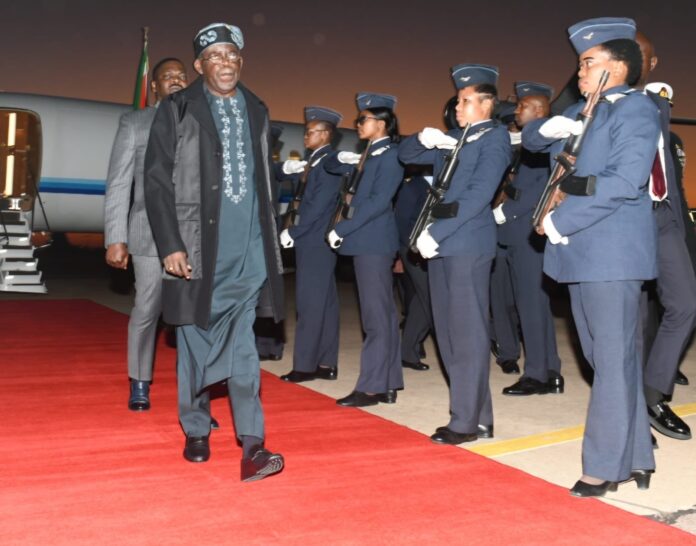The African National Congress (ANC) has responded to growing concerns following President Cyril Ramaphosa’s recent announcement about South Africa’s new visa policy for Nigerian travellers.
The new policy, unveiled last week, requires Nigerian applicants to submit only a copy of their passport when applying for a visa. The original document is expected to be submitted at a later stage in the application process.
However, some critics misinterpreted the new measures, suggesting that they would allow Nigerians to travel to South Africa without their passports.
In response, ANC Secretary General Fikile Mbalula has taken to social media to clarify the intentions behind the revised policy.
“We make it abundantly clear: South Africa is not a playground for lawlessness,” Mbalula stated.
He emphasized that the changes to the visa process had been deliberately misrepresented. According to Mbalula, the new procedure was designed to streamline travel requirements for Nigerians, not to create loopholes in the country’s immigration system.
“The relaxation of visa requirements does not equate to entry without passports. There has been a clear distortion of the President’s words,” Mbalula continued.
The ANC’s clarification aims to ease fears among the public that South Africa is opening its borders to lawlessness, as some critics suggested. The party reaffirmed that South Africa remains committed to upholding strict immigration controls while fostering better relations with Nigeria.
South Africa and Nigeria have long been key partners in Africa, with both nations playing significant roles in regional politics and trade. Strengthening the relationship between the two countries is a key priority for the ANC.
The new visa policy is part of broader efforts by the South African government to simplify the travel process for Nigerian business people and strengthen bilateral ties. It is also seen as a way to encourage economic growth through improved trade relations.
Despite the backlash, the South African government remains firm in its stance. Mbalula pointed out that the policy changes were made with the aim of facilitating business and improving diplomatic relations between the two countries.
“It is important to note that this policy is aimed at enhancing trade relations, not at compromising South Africa’s security or the integrity of its immigration system,” Mbalula stated.
The ANC’s intervention comes amid widespread confusion and debate on social media about the implications of the visa changes. Many social media users had expressed concerns that the new policy could lead to a surge in illegal immigration, with some suggesting that Nigerians would be able to enter South Africa without proper documentation.
In the face of these concerns, the ANC is working to assure the public that South Africa’s immigration policies remain firm and that the country’s borders are secure.
“The president’s statement was clear in its intent: to ease the process for legitimate travellers, not to invite disorder,” Mbalula concluded.
The revised visa policy has sparked a heated debate in South Africa, with some members of the public questioning the government’s motives and its impact on national security. On the other hand, supporters of the policy argue that the move will help strengthen economic ties between the two nations and attract more investment to South Africa.
As the situation unfolds, the ANC remains committed to clarifying any misunderstandings surrounding the new policy and ensuring that South Africa’s reputation as a secure and stable destination for business and tourism is upheld.
With these clarifications, the ANC hopes to address the concerns of both the public and international observers, ensuring that the new visa policy is understood as a step towards enhancing relations between two of Africa’s most influential countries.
While the policy has yet to be fully implemented, the ANC’s swift response to the controversy indicates that the government is keen on preventing further confusion and keeping the focus on fostering a strong partnership with Nigeria.

